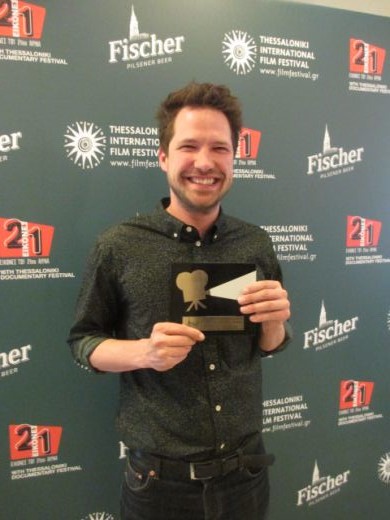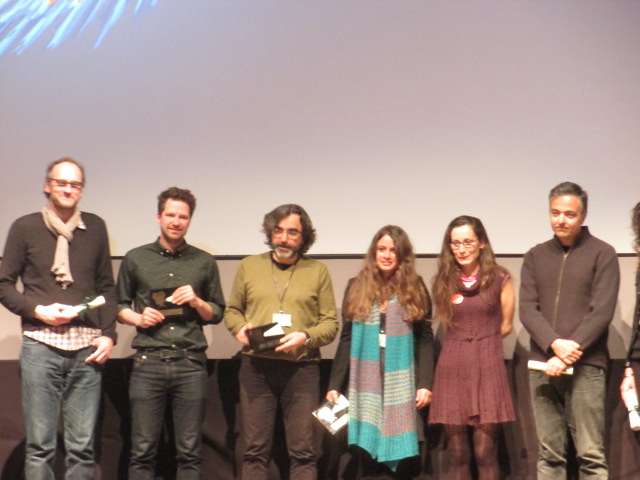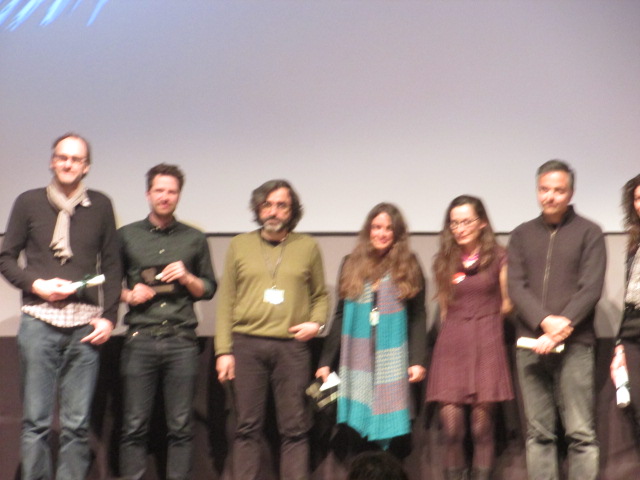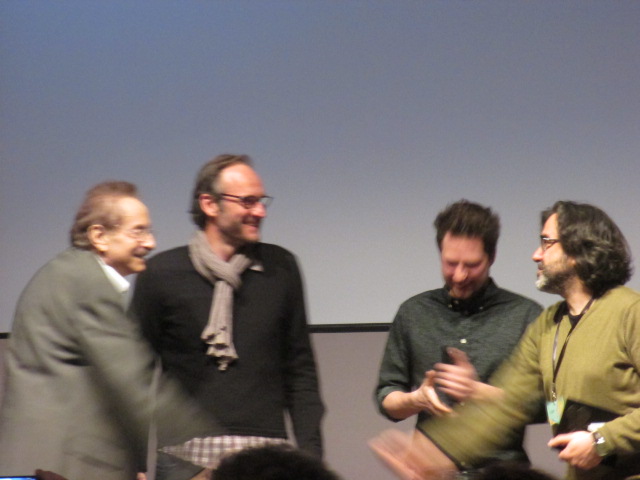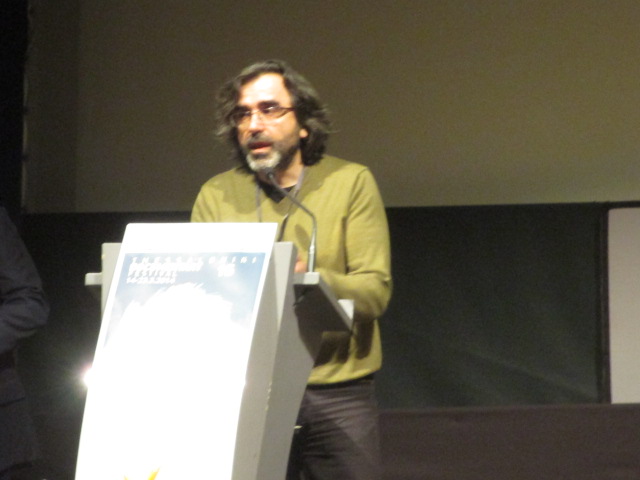Is objectivity what is desired in the making of a documentary film? Must a director keep an emotional distance from his film’s main character? These questions were at the heart of the first “Just Talking”, which took place on Sunday, March 15, as part of the sidebar events of the Thessaloniki Documentary Festival - Images of the 21st Century.
Every afternoon, the 11th Documentary Festival invites its guests, directors and industry professionals from all over the world to an open, relaxed discussion, giving them the opportunity to get to know each other and exchange views and experiences. Participating in this first meeting were: Laura Bari, director of Antoine (Hybrid Docs), Magnus Gertten, co-director of Long Distance Love (Stories to Tell), Lisa Merton and Alan Dater directors of Taking Root: The Vision Of Wangari Maathai (Habitat), Kimberly Reed, director of Prodigal Sons (Stories to Tell), Ismail Necmi director of Should I Really Do It? (Portraits: Human Journeys) and Nahid Persson Sarvestani director of The Queen And I (Portraits: Human Journeys).
In Should I Really Do It? Ismail Necmi tells the incredible story of Petra, a German woman living in Istanbul, ironically reversing the image of the Turkish immigrant to Germany. During shooting, Petra learns that her twin sister has cancer and finally dies, while she herself later learns that she has cancer. “In the two and a half years that I was shooting the film Petra and I developed a strong bond. I feel even closer to her now than I do to my own family”, the director confessed, and added: “I had a big ethical dilemma with whether or not I should show some of her private moments. As Petra’s friend I said no, but as an artist, yes. But if I had kept a distance from her, the result would not have been the same”.
In The Queen And I the director Nahid Persson Sarvestani is herself a character in the story she films. In 1979 she participated in the revolution that overthrew the monarchy in Iran. She was then exiled by the Islamic power structure, and decided to direct a film on her former opponent, the then queen of the country. “I don’t like being in front of the camera at all, but this was also my story, I needed to tell it”, she said.
Kimberly Reed also appeared in front of the camera. Her film Prodigal Sons is about her adopted brother. Kimberly Reed returns home with the hope that she will be able to repair her relationship with her adopted brother. During the film unbelievable revelations are made – such as a blood relationship to Orson Wells and Rita Hayworth – strong arguments take place between the siblings and unexpected reversals arise. “At first I didn’t want to be part of the film, but the reversals that happened during shooting brought me in front of the camera”, the director noted.
Lisa Merton and Alan Dater shot Taking Root: The Vision Of Wangari Maathai together. The film tells the story of the first African woman to receive the Nobel Peace prize. 35 years ago, Maathai urged Kenyan farm women to plant trees, as a reaction to the deforestation that was taking place. The women banded together and created their own political power, which contributed to the overthrow of the 24 year old dictatorship in Kenya. “She ‘planted’ not only trees, but Kenyan democracy. She was tortured, jailed, and considered persona non grata in her own country. She tried to present Maathai not only as a public figure but as an extremely vulnerable human being”, Lisa Merton said of her “heroine”.
Magnus Gertten commented “I avoided getting personally involved in the film. People ‘see me’ in each of my films anyway”. Long Distance Love is a love story and at the same time the story of immigration from the former soviet countries to Russia.
Laura Bari’s film speaks about Antoine, a five year old Vietnamese boy born in Canada. “Antoine is blind, but instead of limiting him, his disability seems to mobilize him”, the director noted. Antoine runs, drives, takes decisions, makes radio broadcasts and loves conference calls. For two years now he uses a tiny microphone adapted to a hearing aid and with this he discovers the sounds that surround him and puts his “signature” on the soundtrack of the film. “I felt I was sharing his unbelievable freedom”, Bari said.
Then the seven directors who took part in “Just Talking” spoke about their relationship to their subjects. “The relationship of the director with his main character is like the relationship between two dancers who are close together and react to each other’s movements. Interaction interests me. I am interested in people’s hearts, their feelings, not objectivity” , Alan Dater noted. His collaborator on the film, Lisa Merton said that she completely identified with Wangari Maathai. “I’m deeply subjective”, the director concluded.
“I can’t work keeping distant from my characters, I would like to get under their skin if that were possible”, Nahid Persson Sarvestani said, and added that anyways, in this particular case she could not have easily been objective as she was a part of her story.
“Subjectivity does not mean sacrificing the truth”, said Kimberly Reed. “It can mean that we come closer to it, to the subjective truth of each character”. “I’m not interested in presenting a true story, but the truth of human existence”, commented Magnus Gertten. He declared that he is an advocate for all the desperate people who still dream, while Laura Bari noted that the most important thing is to ensure the inner balance of the film.
 Mcmahon Vanessa
Mcmahon Vanessa 



















